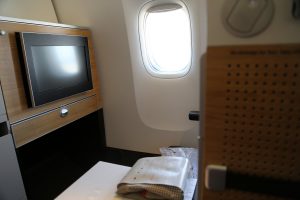 While travels never go exactly according to plan (and perhaps that is part of why I travel), there are several important steps one can make prior to a trip to help ensure your trip is a smooth one.
While travels never go exactly according to plan (and perhaps that is part of why I travel), there are several important steps one can make prior to a trip to help ensure your trip is a smooth one.
Insurance
One of the most overlooked items when planning a trip is travel insurance. Sure it costs a bit to acquire prior to a trip but based on having peace of mind when traveling and the actual cost versus what might be incurred costs as a result of sickness or injury is surely worth the up front price. There are numerous types of insurance ranging from short trips to long term travel insurance options for retired travelers.
Pack Light
I cannot stress this enough. If you enter your packing with a mindset of “what do I really need” versus a mindset of “lets take much of my wardrobe and other household items with me” you will be rewarded in several ways. If you pack to fit the carry-on requirements of most flights you eliminate the risk of the airline losing your baggage – and it does happen – it is has certainly happened to me’ on more then one occasion. And you avoid waiting in line at the luggage carousal for your bags to arrive. Not to mention a carry-on is generally lighter and easier to tote around versus a larger checked bag.
Check Travel Documents
Make sure your passport has at least 6 months expiration before you take a trip overseas. While perhaps sounding a bit old school in this digital age, it is always a good idea to leave copies of your passport with family and bring a copy with you.
Notify your bank/credit card company ahead of time as to the countries you will be traveling in. Note their international phone number in case you need to call them while abroad.
And remove any credit cards, other cards or items you don’t need to take in your wallet – and again while sounding old school, consider putting your most important documents in a money belt – for an added layer of security.
Be sure your medical insurance card is one of the documents you take with you.
 Miscellaneous
Miscellaneous
It is often the miscellaneous items that can cause complications while traveling. Some items to consider are: turn off data roaming on your cell phone (otherwise pay often exorbitant roaming charges) – alternatives are purchasing a local sim card (make sure your phone is unlocked) or signing up for your providers’ International plan ahead of time.
Check the electrical outlet situation – and bring a charger adapter if needed. Create a travel checklist or use ours – and do a final glance before leaving for the airport. And know the conversion rate of the country you are going to – nothing like standing in front of an ATM and not knowing how much money to withdraw when presented with a numberof options all with more zero’s after the numbers then you are used to!
Google Maps
This is one of the most valuable apps I have used in all my travels – the most useful features are being able to use the maps offline, knowing exactly where you are at any time and perhaps even more importantly, knowing the direction you are facing.
Prior to venturing out each day, pre-load the maps on your phone – zooming in to the areas you will be visiting to the smallest scale so individual sights or businesses are listed. This way if you don’t have internet access while on the road you will still be able use the maps.
Google Maps has helped me out of numerous situations where otherwise I would have been lost or wasted valuable time trying to determine directions. In addition, it has brought me new experiences by directing me through parts of towns and streets/alleyways at times that I would otherwise never have visited on my own.
These are just a few helpful trip preparation items – do you have your own? Let us know by leaving a comment below.





Leave a Reply